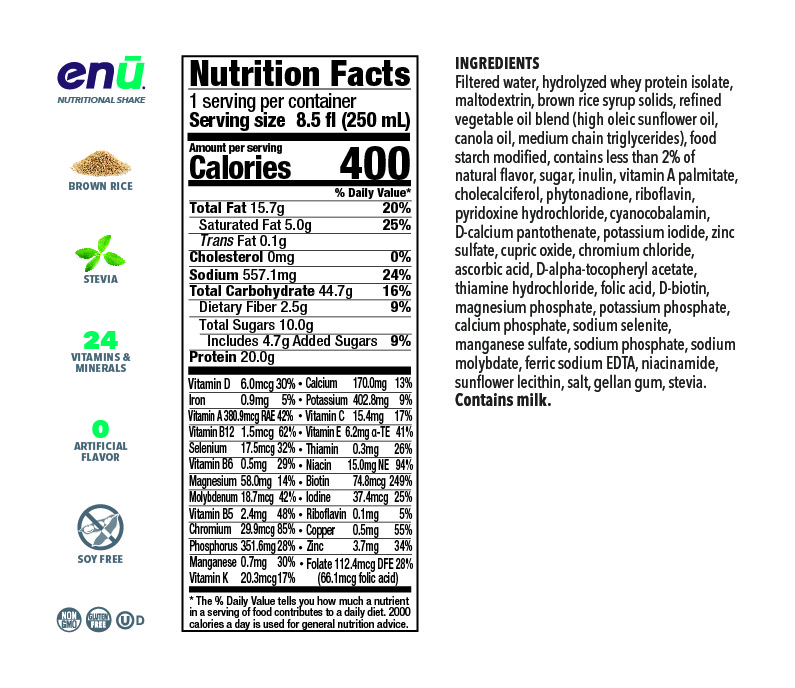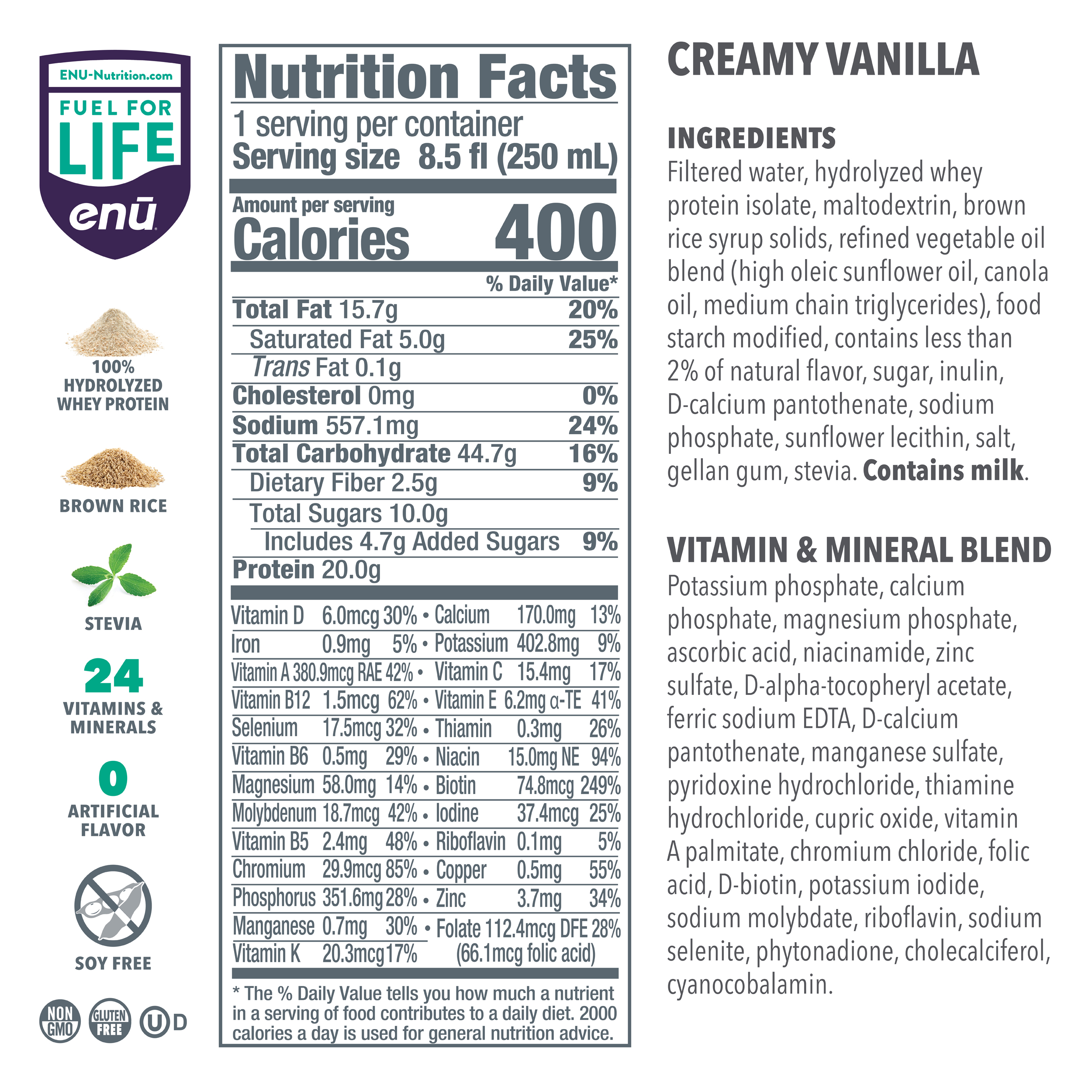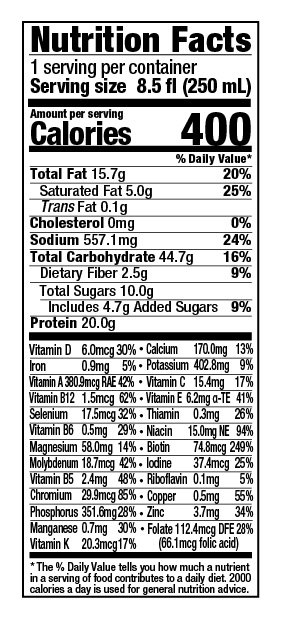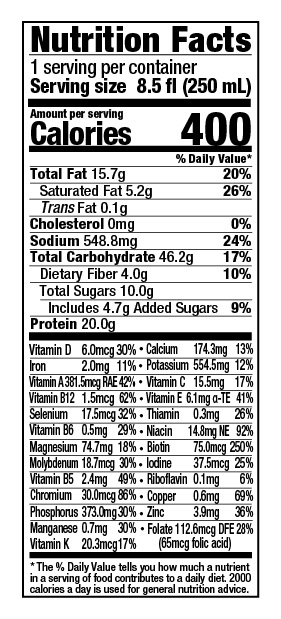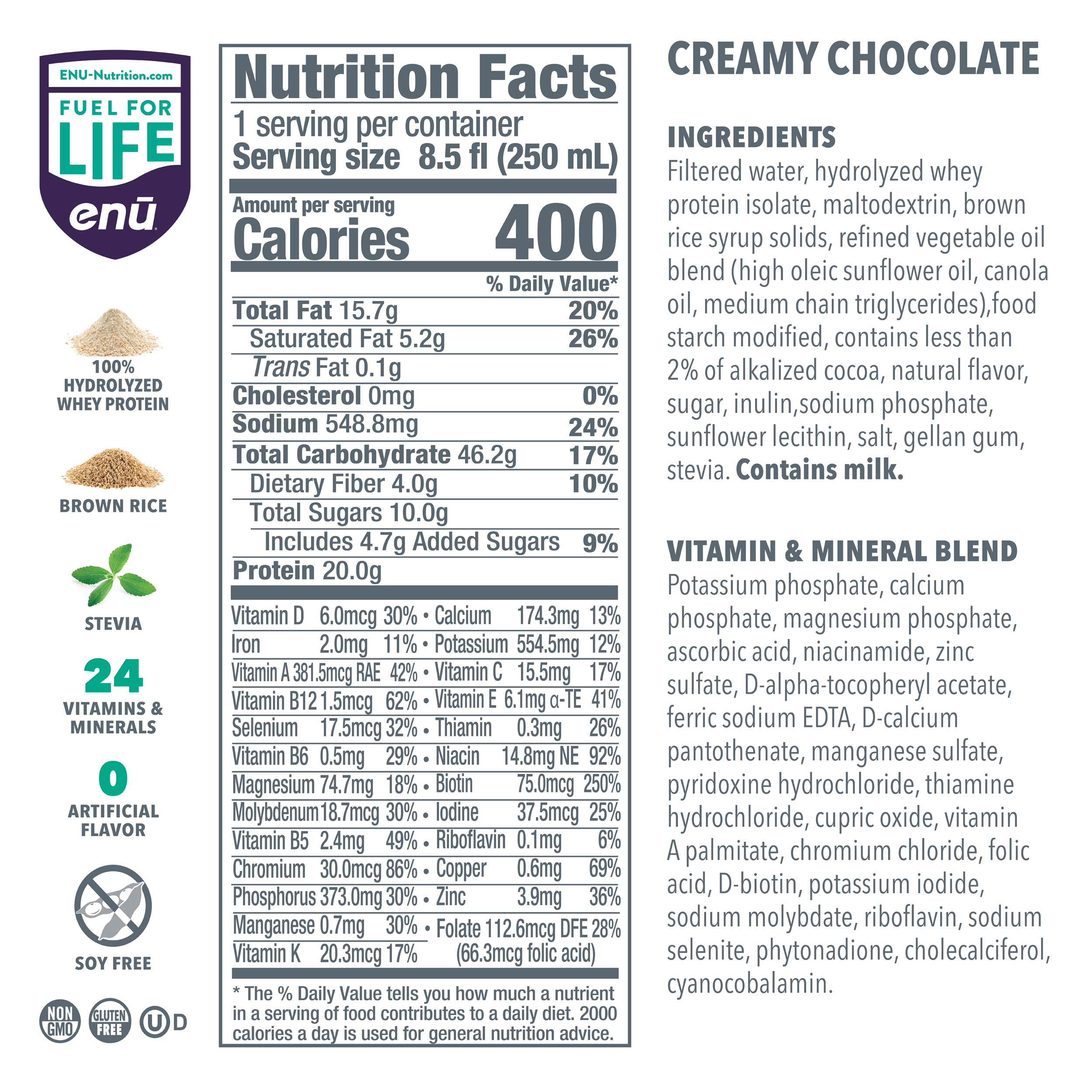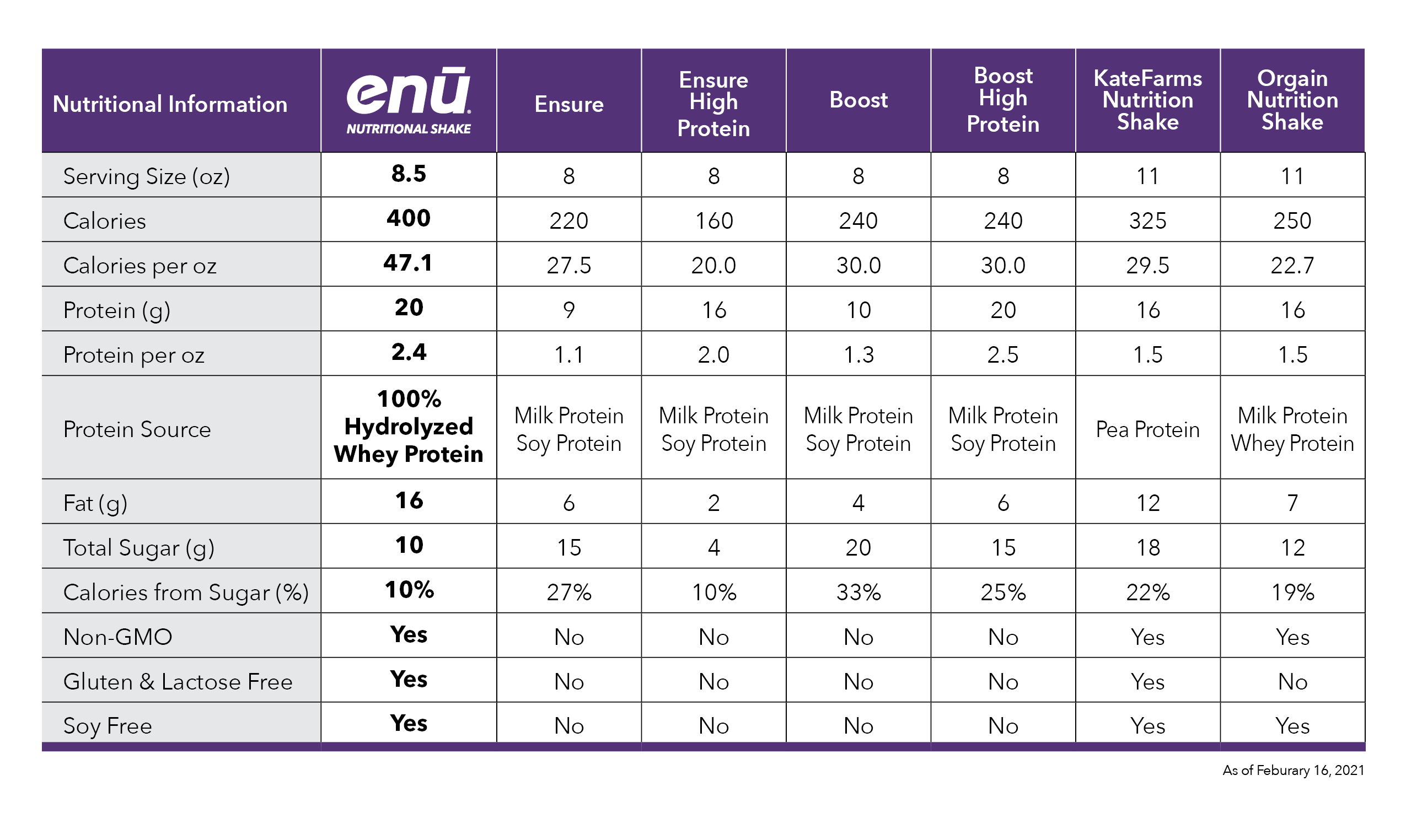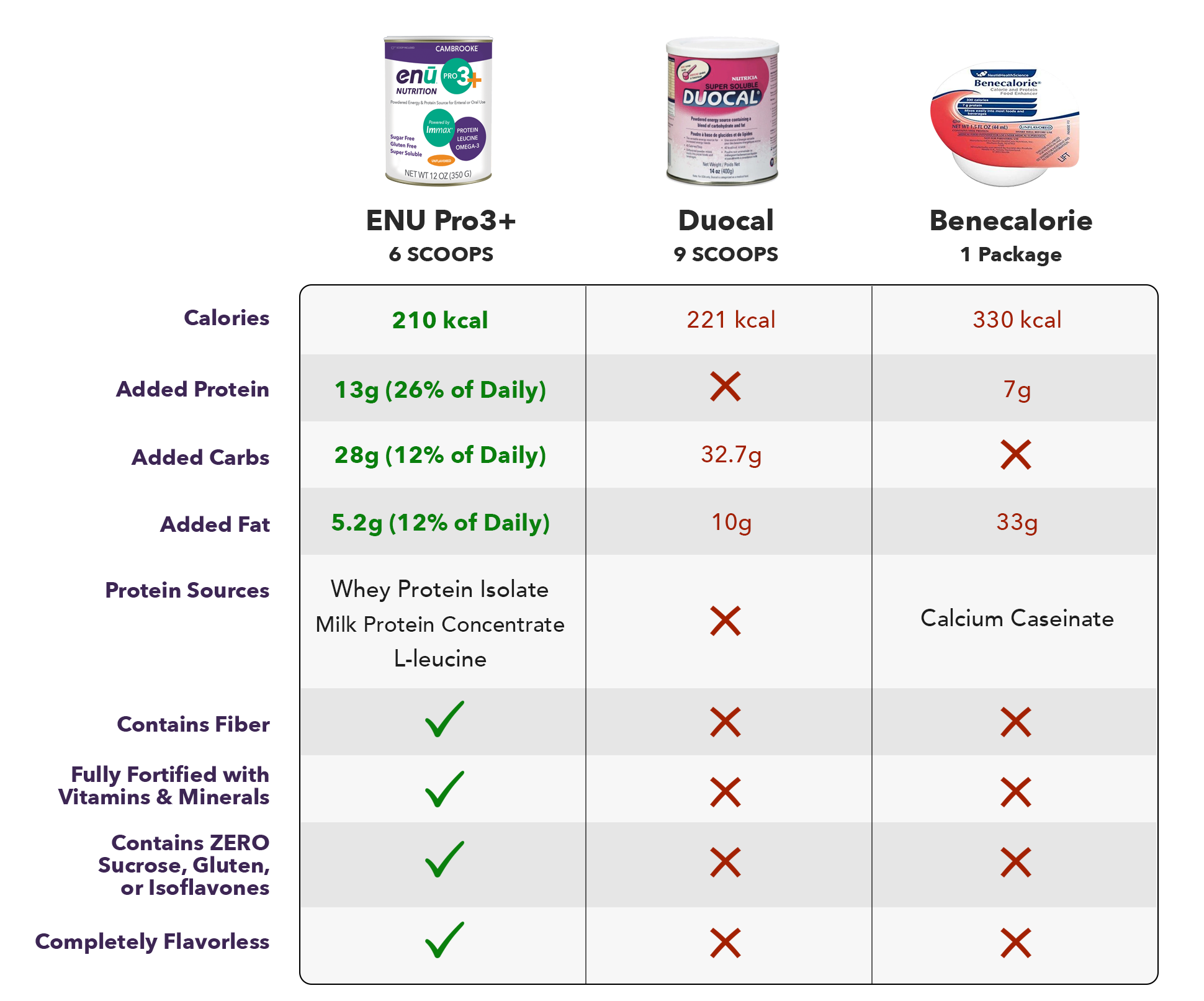
Get a FREE
ENU Intro Pack*
*Just Pay $2.00 Shipping

Why Is Your Appetite Gone?
Though most of us take it for granted, a healthy appetite is integral to a person’s overall well-being. This impulse reminds us when to eat and how much to consume, so when it disappears or diminishes, a person can quickly find themselves undernourished. Unfortunately, a loss of appetite can be a frustrating issue, as there often seems to be little a person can do to address the problem, but one strategy that sometimes works is figuring out what the lack of hunger stems from and targeting any treatments or lifestyle changes at that underlying condition. If you have noticed that you haven’t been hungry for days or weeks, you might be wondering why your appetite is gone and how you can maintain your weight with nutrition shakes in the meantime. To find out, keep reading as the team at ENU discusses this important topic.
Possible Reasons Why Your Appetite Is Gone
To effectively treat a loss of appetite, you and your doctor will likely need to spend some time trying to figure out what caused the issue. While there are a number of possible conditions and ailments that can affect your appetite, they tend to be fairly minor or easily diagnosed, though there are some exceptions to this. The following are some of the most common causes of appetite loss, making them possible reasons why your appetite is gone:
Infections
This term may seem scary, but keep in mind that there are many different types of infections, including some that are nothing to worry about – the common cold, for instance. In fact, most kinds of bacterial or viral infections can have an effect on your appetite, so this avenue may be worth exploring when asking your doctor why your appetite is gone.
Cancer
While a lack of hunger is by no means a definitive sign that someone has cancer, it’s not uncommon for someone with this disease to find that their appetite is gone. This symptom is most common in cancers that affect the digestive system or the organs around it, including the ovaries or pancreas; if you have experienced a loss of appetite in conjunction with stomach pain, bloody stool, or a yellow tint to the eyes or skin, be sure to talk to your doctor.
Medication
Even when taking the same medication at the same dose, two different people can have wildly different reactions to a particular drug, making the side effects often unpredictable. One such side effect that someone may or may not face is a lack of appetite, which most often appears when taking antibiotics, painkillers, or the drugs used in chemotherapy.
Stress
The effects of stress on the body can be just as varied as the causes of that stress. If you’re facing difficulties at home, work, school, or anywhere else in your life, it could be the reason why your appetite is gone, as eating too little is a common symptom of stress.
Hormonal Imbalances
Most people are familiar with the role hormones play in determining mood, but these chemical messengers are also part of the body’s system for governing appetite. If the levels of certain hormones become imbalanced – which can occur due to things like diabetes, thyroid issues, pregnancy, stress, or some medications – then you may find that your appetite is suddenly gone.
Mental Illness
Because there are so many different types of mental illnesses out there, and because one particular condition can manifest in many different ways from person to person, there are many symptoms that have been associated with some form of mental illness, including a loss of appetite. Depression and anxiety are perhaps the most common of these, but eating disorders like anorexia tend to have the biggest impact on appetite among the various mental illnesses.
What to Do If Your Appetite Is Gone
If you sometimes have little to no appetite for days or weeks at a time, the first thing you should do is talk to your doctor about your symptoms, as they may be able to explain why your appetite is gone and possibly provide relief. That said, there are also some solutions you can implement on your own through simple lifestyle changes.
Everyone needs to provide their body with proper nutrition, but this can be difficult for those who are rarely hungry. Because someone without an appetite generally doesn’t want to eat very much, large meals are probably out of the question; instead, switch to eating small, frequent meals that won’t tax your stomach. This strategy is especially effective if you focus on foods that offer significant amounts of calories and nutrients in a small, easy-to-consume package – for example, whole grains, dairy products, and lean sources of protein.
Another option that can help improve your calorie intake is to incorporate liquid nutrients into your diet, such as meal replacement shakes. Those from ENU offer 20 grams of protein, complex carbs from foods like quinoa, healthy fats from coconut and sunflower oils, and 24 vitamins in minerals – all in one 340-calorie drink. Enjoy one of these shakes in place of a small meal or have one after eating to more easily meet your dietary needs in a tasty, convenient way.
Healthy Nutritional Supplements for When Your Appetite Is Gone
Staying healthy and maintaining your weight can be tough when your appetite is gone, but the meal replacement shakes and nutritional powders from ENU can make the process just a little bit easier. To learn more about how these supplements can assist you, visit ENU online or call us today at (855) 266-6733.




